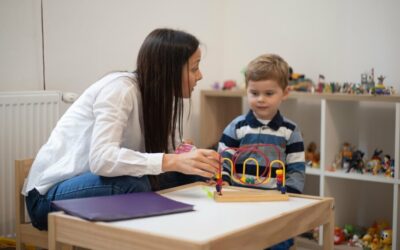
Children experience complex feelings just like adults. They get frustrated, excited, nervous, sad, frightened, worried, and angry, but often lack the ability to communicate how they feel. Children living through the war between Russia and Ukraine are subject to traumatic experiences, which often, in addition to short-term effects, such as stress, fear, and depression, can also result in long-term post-traumatic stress disorder (PTSD). Helping them express their feelings is crucial to the immediate and long-term impact of their experiences.
When speaking of the unique effects of war on children, Dr. Itai Pessach, Director of the Safra Children’s Hospital at Sheba, explains: “There are moments and events that leave a mark for many years and can change an entire life,” and recalls, “When I traveled to establish the infrastructure for Israel’s field hospital in Ukraine, I met young children who were torn from their lives and became refugees overnight. It was clear to me that the biggest difficulties still lie ahead, as they will need to cope with the trauma. After returning to Israel, as the director of a children’s hospital, I knew we must come up with an original solution to help the children and their parents cope with the crisis they were going through.”
As part of its commitment to support Ukraine and, in particular, its most vulnerable, Sheba partnered with Oranim Academic College to help traumatized children by developing a unique tool: a therapeutic game that allows children to process what has happened and restore a sense of normalcy through a series of complementary activities.
The game was created by Dr. Pessach and Dr. Livneh, a pediatric and adolescent trauma care expert at Oranim Academic College, and aims to encourage children to talk about their emotions and traumas, as well as visualize an alternate reality through which they can share their fears and concerns. By sharing their concerns with what is referred to as “worry dolls,” children can ‘transfer’ their anxiety to the dolls. By engaging in this activity as part of a game, perceived as such by the users, the children are more inclined to open up.
According to Dr. Livneh, “We have created a tool that allows them to speak in their language, the language of children. It is important to be able to mediate children’s experiences, and to give them suitable tools to psychologically process the changes in their lives to reduce the stress and anxiety they are in and minimize future trauma as much as possible.”
Hundreds of children from schools and youth movements around Israel, as well as children hospitalized at the Safra Children’s Hospital who volunteered to help, handcrafted the game boxes, which were delivered to Ukrainian children suffering from PTSD at Sheba’s ‘Shining Star’ field hospital in Ukraine, with very positive results.
Committed to alleviating the suffering of Ukrainians, and recognizing the unique psychological challenges faced by children, Sheba will continue to support important initiatives that address these needs, and is currently developing new projects on this front.
Published January 30,2022, Sheba Global News